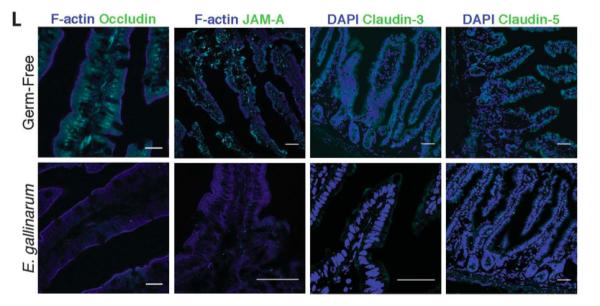The cause of autoimmune diseases remains a black box. Sure, there is a genetic component, and certain environmental conditions that likely kick start them. But, as far as the complete cause of diseases such as lupus, celiac disease, Hashimoto's thyroiditis and the rest of the group - there are still a lot of unanswered questions.
This is one of the reasons why a new paper published in Science entitled “Translocation of a Gut Pathobiont Drives Autoimmunity in Mice and Humans” is so exciting. Although there have been many links made between the microbiome (bacteria that reside in our bodies) and immune diseases, the role of these bacteria in autoimmunity is poorly understood.
The research group from Yale show that a gut bacteria can translocate and promote autoimmunity in genetically predisposed hosts. How could this happen? Our epithelial cells are connected by junctions. These junctions keep the tissue together, giving it some integrity, but also form openings to allow things such as water and small molecules to pass through. Sometimes, however, the barrier is broken down and the outcome can be disastrous. This is particularly important in an organ such as the small intestine, that is packed with bacteria. When the junctions are not functioning properly, the result is likely to be an infection and subsequent inflammation.
The study found that when a particular bacterium, Enterococcus gallinarum, moves from the gut to other tissues and organs, such as the liver, autoimmune responses are triggered. This occurred in organisms that have a genetic predisposition to autoimmunity.
In experiments, antibiotic treatment was effective at stopping the growth of E. gallinarum in tissues. Additionally, the autoimmune reaction could be suppressed with an antibiotic or vaccine.
The research used mouse models that were genetically susceptible to autoimmunity. In these mice, when the E. gallinarum traveled to other locations, it prompted both inflammation and the production of auto-antibodies - two of the telltale signs of an autoimmune disorder. This same result happened in cells that were cultured from the livers of people. In addition, E. gallinarum-specific DNA was identified in the livers of patients with autoimmune diseases.
This work brings the role of the microbiome into the limelight of one of the causes of autoimmune diseases like lupus and potentially others. For a complex disease like autoimmunity, the result that a potential cure may be found in vaccines derived against bacteria or antibiotics is particularly exciting.
Source: Manfredo Vieira S et al. Translocation of a gut pathobiont drives autoimmunity in mice and humans Science 09 Mar 2018: Vol. 359, Issue 6380, pp. 1156-1161 DOI: 10.1126/science.aar7201




